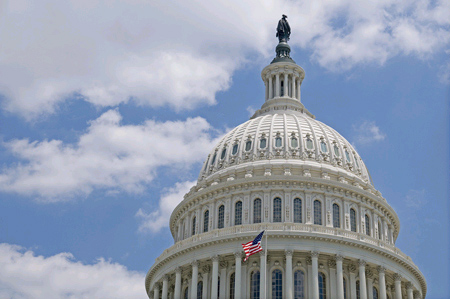
We're pretty focused around here on trying to improve opportunities for people with vision loss to use our talents and pursue our dreams. Certainly, education is one of the most important opportunities and we know that the right technologies are opening up access to education like never before. This week, Senator Tom Harkin (D-Iowa) convened a hearing to spotlight the need to ensure that access to education is enhanced through the deployment of accessible technology. You can read more about the hearing in our breaking news item from AccessWorld.
Senator Harkin was right on point when he noted that building accessibility into technology when it is developed is so important. The California State University (CSU) system was highlighted at the hearing because it is a model of accessibility, not only in providing accommodations for students with disabilities, but more important because CSU officials work to ensure that underlying technologies and systems are accessible. Toward that end, Mark Turner, who runs the CSU Center for Accessible Media, spoke about their successful efforts to work with Apple to transform its iTunes U into an accessible offering and the challenges yet to be met in convincing Google to fully address access to Google Apps. Turner also made clear that CSU's job would be easier if federal (and state) governments would live up to their obligations to purchase and use technologies that are accessible to people with disabilities. Section 508 is a federal law that requires this, but as Turner noted, governments don't require technology vendors to validate their claims regarding accessibility, and no performance testing is done.
In this month's AccessWorld, I explore why laws like Section 508 sometimes don't live up to our hopes. The article is entitled "Using Legislation and Advocacy to Respond to a Changing Technology Environment."
We hope that Senator Harkin will act to strengthen Section 508 and our nation's education laws to require that all technology used in government and throughout our schools (including universities) is accessible to all. We know that sometimes accessibility isn't achievable in every situation, but we need much greater commitment and much stronger enforcement to back up the goal.
Kudos to our colleagues at the National Federation of the Blind for working with Senator Harkin to get the hearing scheduled and for the excellent testimony provided by Mark Riccobono, Executive Director, Jernigan Institute, National Federation of the Blind. Because lots of NFB members were in town for the annual meetings with Congress, the hearing room was filled by people who are blind or visually impaired showing just how important this issue is to us.
Photo credit: Gary Blakeley / Bigstock
